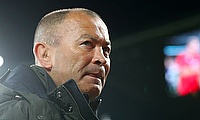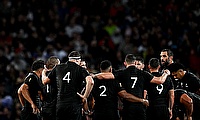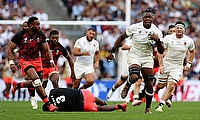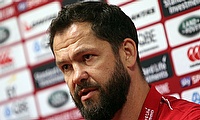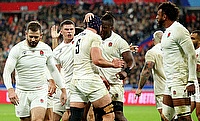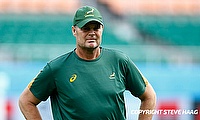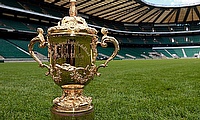World Cup officials clarify TMO rules
World Cup chiefs have attempted to clarify the role of television match officials following the controversial use of replays during the tournament's opening weekend.
The tournament opener between England and Fiji on Friday ended up lasting more than 100 minutes as referee Jaco Peyper referred six separate incidents to the TMO for closer inspection.
The over-zealous use of the TV officials continued across the opening round of fixtures, with games involving Tonga and Georgia, Ireland and Canada as well as France's match-up with Italy all interrupted for lengthy periods as important calls were referred to the respective TMOs..
Initial response to the tournament’s eight games gameshas seen a wave of criticism, with Ireland coach Joe Schmidt fearing it could spark a wave of injuries as players are left to cool down while they wait on a ruling. Schmidt was also joined by his Georgian counterpart Milton Haig in criticising the overuse of the TMO, warning a new generation of fans could be turned off the sport if action was not speeded up.
Former Australia fly-half Michael Lynagh, a World Cup winner in 1991, speaking on Monday, criticised the length of time it is taking for decisions to be made, saying: "It's taking too long. It's the process that's wrong. It's important to get decisions right on these big occasions, but let's work out how we can do that quickly, concisely and correctly."
Other pundits, noticeably during ITV’s half-time coverage, have also called on match referees to show more courage and conviction in their decision-making and not rely on TV replays as back-up.
But now World Cup bosses have released a statement explaining just what the TMO can and cannot interfere with.
It said: "The objective of the television match official system is to ensure accurate and consistent decisions are made on the field in a timely and efficient manner. The TMO is a tool to help referees and assistant referees with their on-field calls and the referee remains the decision-maker who is in charge of the process."
Within the laws of the game the TMOs can only be used only in four areas - determining the grounding for a try and whether the players involved were in touch before the try was scored, to check whether a kick at goal was successful, to confirm if an infringement in the build-up to a try or scoring opportunity took place and to consider an act of possible foul play.
Chairman of the World Rugby Match Officials Selection Committee John Jeffrey said: "The TMO is a part of the match official team and the fantastic technology available is a tool to be used in the making of key decisions during matches. The TMO process is used to make sure the correct calls are made to protect the integrity of the game.
"It's worth noting that just 28 per cent of stoppage time in the opening match of this Rugby World Cup was taken up by the TMO process but we are committed to reducing that time further while not compromising on accuracy. As such, all involved - referees, TMOs, technicians and television producers - are working together to achieve that."

